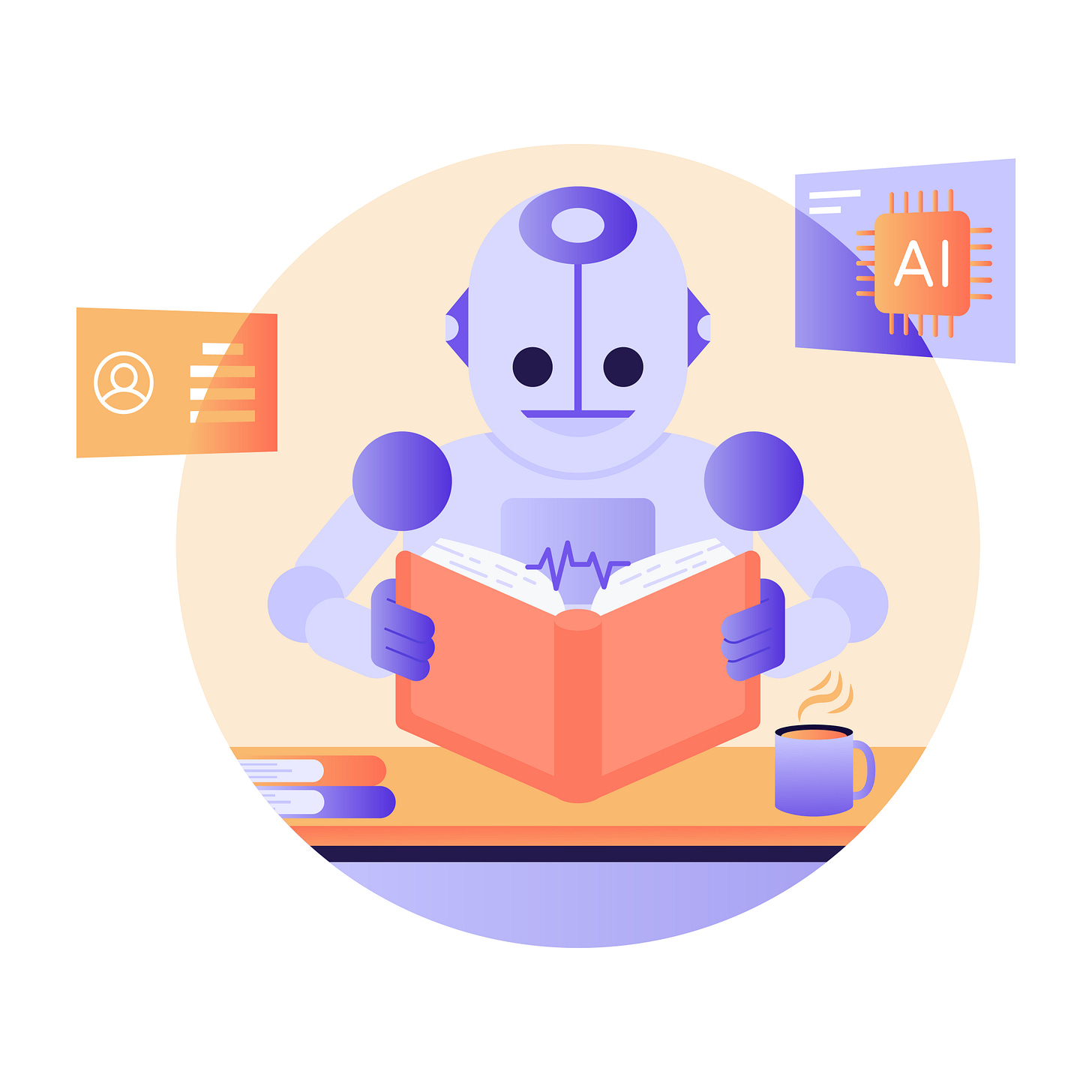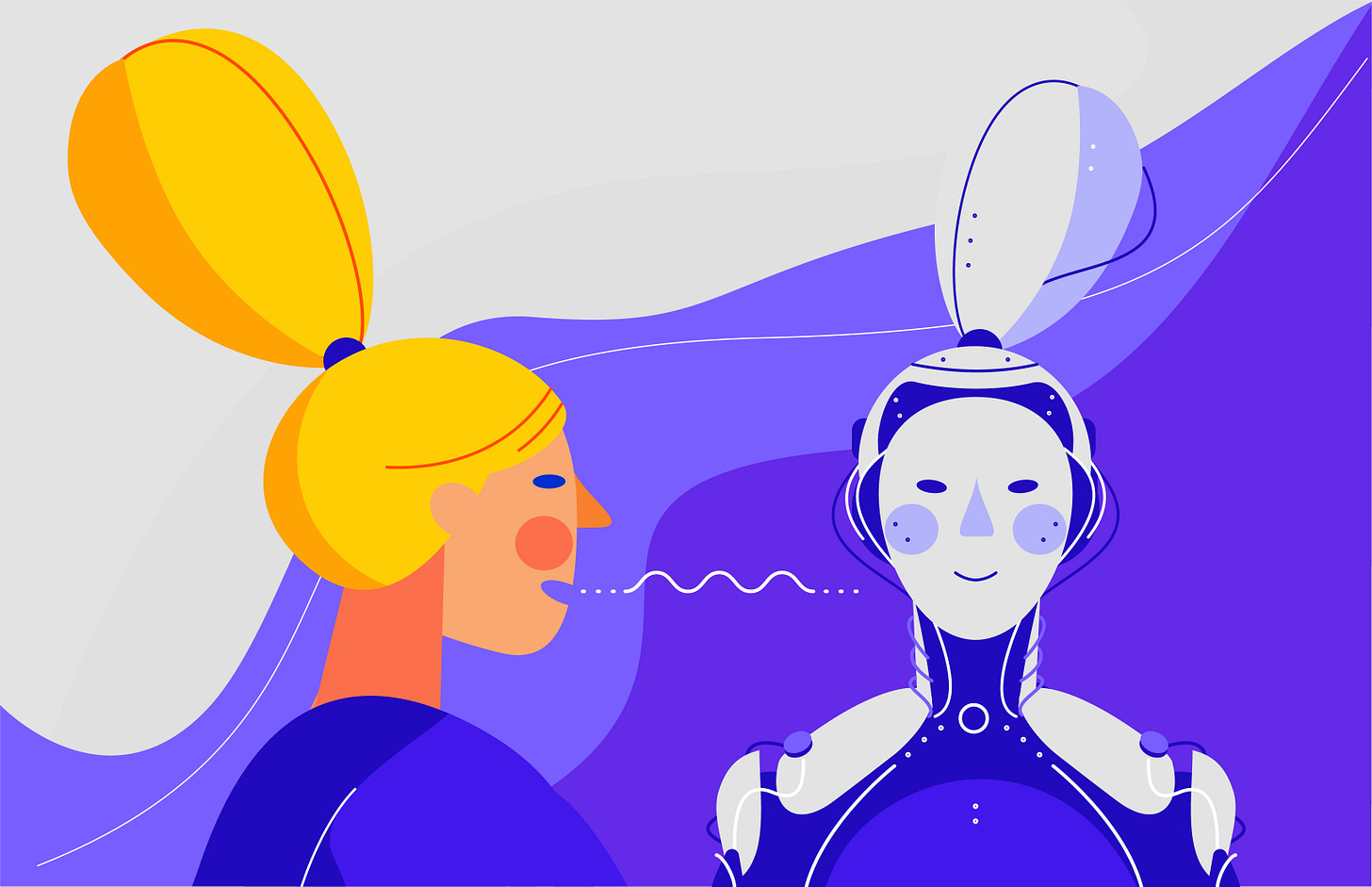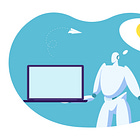Ever asked an AI to find you the best pizza in town, only to get a response that sounds confident but doesn't actually help? Or maybe you've noticed how ChatGPT can write a sonnet about quantum physics but can't tell you if your local coffee shop is open right now?
Here’s the deal: many people confuse intelligence with knowledge in AI discussions. AI tools, like ChatGPT, aren’t encyclopedias with an attitude—they’re systems trained to predict and process based on patterns. And when we expect them to know everything, we’re setting ourselves up for frustration.
In this article, we’re going to break down the difference between intelligence and knowledge in AI. By the end, you’ll not only understand why AI doesn’t know the best pizza joint in town, but also how to set realistic expectations for what it can (and can’t) do. Let’s dive in.
What Is Intelligence vs. Knowledge?
Think of intelligence as a skilled chef who can create amazing dishes from any ingredients available. Knowledge is like that chef's pantry—it's all the ingredients they have to work with. An expert chef with an empty pantry can't make a meal, just like AI can't give accurate answers without relevant information to work from.
AI’s “intelligence” is its ability to process patterns, reason, and generate responses based on the data it’s been trained on. It’s like that chef’s talent. But here’s the catch: AI doesn’t go grocery shopping. It can only use the ingredients it was trained with, which means its pantry is limited to the data it’s seen before.
When you ask AI to help solve a math problem, it can work through complex calculations brilliantly—that's intelligence. But when you ask it about yesterday's game score, it might stumble because that information isn't in its knowledge base.
And that’s the key difference: AI doesn’t truly understand or reason like a human—it analyzes patterns and probabilities to create its answers. It’s more like getting a recommendation from someone who’s incredibly clever but only working with a limited knowledge base. They’ll give you a reasonable guess, but their “smartness” is limited by the information they have on hand.
Why Do We Assume AI Knows Everything?
AI has a bit of a PR problem. Thanks to sci-fi and marketing hype, many people picture AI as an all-knowing digital brain that's constantly learning and updating—like a supercharged Google or Jarvis from Iron Man.
The reality? AI tools like ChatGPT work more like an incredibly smart student who memorized a massive, but fixed, set of books. Those books might be from last year or even older, and once the studying is done, no new information gets added unless the AI gets completely retrained. It's not necessarily browsing the internet, reading the news, or learning from our conversations.
This is why AI might write you a brilliant essay about historical events but struggle to tell you about last week's viral TikTok trend. It's not accessing the internet in real-time—it's working entirely from its "studied" material. Let’s explore how to set realistic expectations and get the most out of AI.
Realistic Expectations for AI
Now that we’ve cleared up what AI isn’t, let’s talk about what it is—and how you can use it effectively. AI might not be all-knowing, but it’s an amazing tool when you set the right expectations.
AI shines in three key areas. First, it's a master organizer – whether you're planning a trip, brainstorming for a project, or mapping out your weekly meals, it'll help you pull everything together quickly and efficiently. It's also great at answering questions, working like a super-smart librarian who can help you reason through information – but here's the key most people miss: you often need to provide the facts yourself. Give it a pricing spreadsheet or your shopping list, and it'll help you analyze it brilliantly. And when it comes to creativity? AI is your ideal brainstorming buddy, offering fresh ideas for everything from birthday party themes to writing that tricky email you've been putting off.
Of course, AI has its limits. Most AI tools can't give you real-time information—unless they're specifically connected to the internet, they won't know about breaking news or live updates. They also struggle with complex judgments; while they're great at spotting patterns, they don't truly 'reason' like humans do when it comes to nuanced situations requiring deep understanding or emotional context. And despite what many people think, most LLMs like ChatGPT can't actually find you the 'best' or 'cheapest' anything—they're not out there comparison shopping or checking current prices. When they make recommendations, they're really just making educated guesses based on their training data. (That's why we have specialized tools, like price comparison apps, for those specific tasks.)
The trick is to use AI for what it does best while recognizing its limitations. For instance, ask it to help you plan a weekly budget, but don't expect it to know everything about the cost of groceries in your neighborhood.
(Curious about the nuts and bolts of how AI processes information? Check out "How AI Thinks (Without Thinking)" below for a deeper look at the technology—but for now, let's focus on putting this knowledge to practical use.)
Why It Matters
So why does it matter that we understand the difference between intelligence and knowledge in AI? Because setting realistic expectations isn’t just about avoiding frustration—it’s about using AI effectively and responsibly.
Avoiding Frustration
When you know what AI can and can’t do, you’re less likely to be disappointed. Instead of expecting it to act like a magical problem-solver, you’ll see it for what it is: a helpful, if sometimes limited, tool. This shift in perspective makes AI more enjoyable to use—no more yelling at ChatGPT because it can’t find you the cheapest plane tickets.
Using AI Responsibly
Understanding AI’s strengths and weaknesses also helps you use it more ethically. For example, knowing that AI works by predicting patterns can help you avoid misusing it in situations where accuracy or fairness is critical. This knowledge can also help you recognize when it might reinforce biases or offer incomplete answers.
Future Implications
As AI continues to evolve, the line between intelligence and knowledge may blur. Tools that integrate real-time data or advanced reasoning capabilities will push these boundaries. But for now, understanding AI’s limitations ensures you can get the most out of today’s technology without unrealistic expectations.
By keeping these points in mind, you’ll not only avoid the pitfalls of frustration but also become a more informed and effective AI user, which benefits everyone.
Conclusion
AI might not be the all-knowing genius we sometimes imagine, but it doesn't need to be. By understanding the difference between intelligence and knowledge—that an AI can be incredibly capable without knowing everything—you'll unlock its true potential as a powerful, practical tool in your daily life.
Think of AI as that clever friend who's great at helping you think through problems, but needs you to fill them in on the details. Feed it the right information, and it'll help you organize ideas, spark creativity, and tackle everyday challenges. Just don't expect it to magically know things you haven't told it!
So, what’s next? Try experimenting with AI tools yourself. Ask practical questions, test its strengths, and see where it surprises you. And when it falls short, remember: it may not be failing—it may just be working with what it knows.
I'd love to hear from you: What's the most surprising thing you've learned about AI's capabilities? Share your "aha" moments in the comments below—your experience might help someone else avoid the same confusion!






Nice overview, it might have been worth
mentioning that some AI are less restricted in the up to date nature of their knowledge - like perplexity or gemini which search the Web and synthesise new data to answer your questions.
We have a tendency to say that because they're just predicting the next word they "don't think like us", but I'm not always so sure. The whole idea of a neural net is a simplification of our own brain structures and even now researchers are experimenting with adding more structures that we know (or think we know) about. I'm not so sure there isn't part of our brain that thinks exactly like an LLM does, even if we don't realise it.